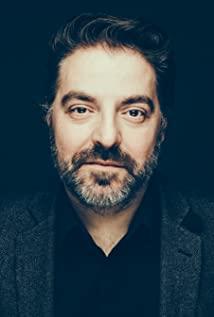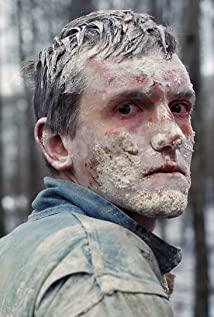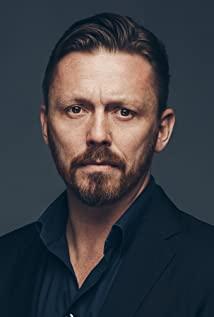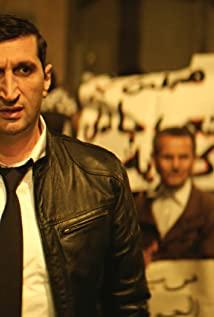"Journal 64/The Purity of Vengeance" (Journal 64/The Purity of Vengeance) is a Danish suspenseful crime film, and it is also a real incident that happened on the island of Sputnik. The original author, Juss Adler Olsen (Jussi Adler-Oleen) has deep moral courage, dare to challenge authority, and writes about Denmark's past dark history. The film is directed by the Danish genius Christoffer Boe, who won the Cannes Golden Camera Award. Under his keen and comprehensive control, the film travels smoothly and freely with shocking shooting techniques. In the different time and space of the two eras, using multi-line parallel people, things, and things, gradually outline the dark historical outlines that occurred on the island of Sputnik and have been hidden for many years, and deeply describe the various aspects of human nature.
In the early twentieth century, Western countries, including the Nazis, generally implemented eugenic policies. In Denmark, thousands of women who were not included in society were quarantined and detained on Sputnik Island. The prisoners who came to the island had to undergo inhumane surveillance and torture in the reformatory throughout their lives. Even if a few were able to regain their freedom, they had to undergo sterilization before leaving to ensure that the lowly blood in their bodies had no chance to be contaminated. The next generation of the country.
Many years after the dethronement of the system on Sputnik Island, a disappearance case in Copenhagen attracted the attention of the unresolved case team. There was no news of a bustard who operated a call-up station after leaving home, leaving many doubts in the past 23 years. What is even more bizarre is that two renovation workers found three mummified and shriveled bodies behind the false wall of an old apartment, surrounding the dining table, but there is still an empty space..., the case was immediately pending by the Q department Detective Carl Mork and assistant Assad paid attention, but with the clues provided by these corpses, the two gradually discovered the huge conspiracy behind them, and the historical scars that had disappeared from the archives many years ago.
In addition to the suspensefulness of the film is still very sufficient, the emotional ups and downs are the highest in the four episodes of the unsettled series. The most impressive thing is the dialogue between the protagonist and key characters on the ship-"Hate may not be necessary in life." The Tao has done the vicissitudes of life for decades, which makes people feel infinite. The film is different from the original three lines. It uses a two-line narrative. While following the process of solving the mystery by the protagonists of the "Q Department", it also exposes that a girl fell in love with her cousin, and was then sent to Sputnik Island for containment. After that, the inhumane tragedy that saw the sun disappeared.
The film emphasizes the past "racist eugenics" in Denmark. It is not difficult to imagine that after the Disbandment of the Women’s Shelter on Sputnik Island, the people who continue to implement this concept are targeted at young girls from ethnic minorities or immigrants. The Winter Organization in the film Physicians of "The Cold Winter Theory" advocated that immigrants are not qualified to multiply, saying that during the process of migration of races to the north, because the climate is more difficult, higher species can survive under the "natural selection of materials." However, today's social welfare is too good, so that "immigrants inferior species" can also develop normally, which is "wrong" for him. When he self-righteously claimed that "higher races established a democratic system," he was also complained by the Middle Eastern Assad that "democratic system was established by Rome and Greece", which is enough to prove the words of "racial discrimination" and "racism". , Often interpreted in a way that is beneficial to oneself.
The paranoid eugenics point of view actually has the justification of good motives, which is very different from the genocide motives of the Nazis to strengthen the German Aryan nation in the past. The idea and original intention behind the doctors who advocate eugenics in the play, from the perspective of national development, are actions made to improve the Nordic social welfare system. The soundness of social welfare finance needs to be based on the investment of more tax resources and the release of fewer welfare shares.
Before watching the movie, it is difficult to imagine that in an advanced country like Denmark, one-party leaders would actually make such remarks, which are somewhat similar to the eugenics theories of the Nazis in Japan and Germany in the past, hoping to implement a kind of artificial natural selection evolution. process. However, under a free, democratic, fair and open election system, with the initiatives of the human rights ideology, similar problems have never been highlighted, and the crux of it has to be allowed to continue to sink. Under the premise that one person, one vote and the value of votes are equal, the majority of ethnic groups receiving social welfare assistance, with the advantage of the crowd, often determine the key role of political power. Let me ask which political party or individual dare to challenge this. What about democratic principles that are difficult to subvert? As a result, eugenic doctors can only carry out an off-stage revolution, attracting disadvantaged women who are pregnant through the guise of free abortion, but in the process, simultaneously perform sterilization operations, so that the disadvantaged will lose their fertility, so as to prevent them from following production. Means to absorb more social welfare assistance. Looking at the situation in the real society, it is obviously contrary to the ideals. More disadvantages that need social welfare are more of themselves. In order to earn a larger share of welfare, they often adopt production methods and increase production to expand the niche of personal subsidies. However, all the responsibilities of being unable to raise children have been entrusted to the social collectives, which has aggravated the burden on the welfare system and caused the social welfare system to repeatedly fall into a crisis of disintegration.
Regardless of the controversial and serious issues that the movie wants to discuss, watching "Unknown Case Code No. 64" is indeed like reading "The Complete Collection of Detective Sherlock Holmes". The highlight is that a murder case brings out many humanistic issues such as history and society. Discussion, through the role of the characters in the face of social injustice, as well as the bottom line insisted in our hearts, to stimulate our reflection on our own behavior and thoughts, this is a suspense movie in addition to brain-burning, the most important thing behind it Fundamental value.
Note 1: The eugenics of forced sterilization was not invented by the Nazis, but on July 14, 1933, the German cabinet passed the "Law for the Prevention and Control of the Offspring of Genetic Diseases", but the Nazis carried the banner of eugenics and carried out ethnic cleansing. massacre. Denmark was occupied by Germany from 1940 to the end of World War II, so it is understandable that there are such concepts and institutions in the country. The Sputnik Island Women’s Shelter in the film and novel of "Unknown Code No. 64" is in the 20th century. In the early days, a product of the eugenics policy led by Nazi Germany, the original novel author, who majored in film, political history, sociology, and medicine, thought of this unsuccessful story based on unbearable real events in Danish history. It also reflects Denmark in the 1960s. Some views on "abortion."
Note 2: Article 1 of the Eugenics Protection Law of Japan: "This law is specially formulated to prevent the birth of offspring with poor eugenics and to protect the life and health of motherhood." Japan's Eugenics Protection Act from 1948 to 1996, 50 During the year, more than 80,000 ligation operations were facilitated. The method is based on eugenics and widely performs ligation operations, but "non-hereditary diseases of intellectual disability and mental illness" have also been included in the norms. Japan has given doctors the power to perform operations without the consent of the parties on the grounds of improving the quality of their citizens, and 70% of them are women. In early December last year, a woman in her 60s in Japan publicly stated that when she was fifteen, she was forced to undergo a ligation under the eugenics protection law at the time on the grounds of "hereditary intellectual disability." Due to the loss of fertility and unable to get married in his lifetime, a national compensation lawsuit will be filed.
View more about Journal 64 reviews











